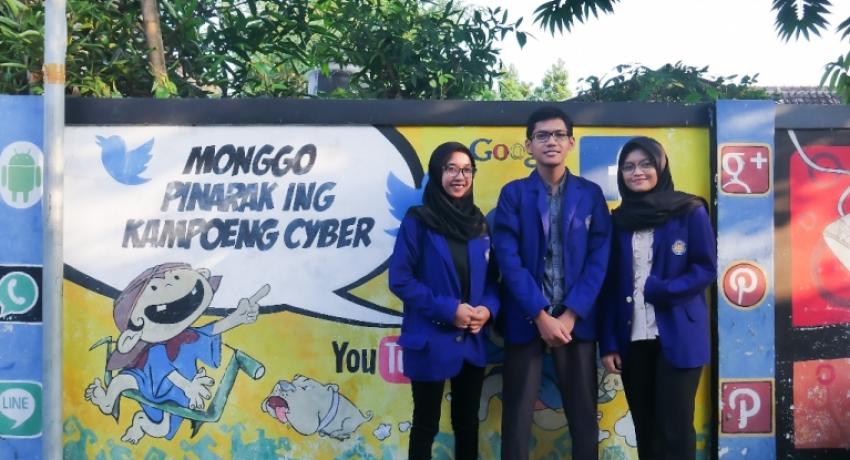Technological development does not necessarily change the nature of society to be individualist. You can find this in Kampung Cyber. This village can be said to be quite "literate" about technology. Every corner has an internet network. To maintain social relations, the Kampung Cyber community applies the Pagar Mangkok culture as Javanese cultural wisdom. Pagar Mangkok is a culture of caring by sharing with others who live around the environment voluntarily.
To find out the social relations of the community in the Kampung Cyber and to know the application of the Pagar Mangkok culture in strengthening the social relations in the Kampung Cyber, UNY Students Community Service Team from Faculty of Social Sciences conducted research on Kampung Cyber. The team consist of Retno Dhamayanti (Sociology Education), Ammar Muhammad (History Science), and Agnes Petrus (History Science) with Grendi Hendrastomo, MM, MA as their supervisor.
The team made observations by staying and following routine activities in the Kampung Cyber community. The team also conducted interviews with the Kampung Cyber community, and conducted a literature study. As for the research outcomes in the form of scientific articles, Pagar Mangkok booklets and documentary videos about Pagar Mangkok culture in the Cyber village.
Retno explained that social relations in the Cyber village can be seen from a number of meetings where they have used laptops and projectors, and used the WhatsApp group to invite residents. Other activities include night patrols assisted by CCTV in every corner of the village.
The Sociology Education student added that the application of the pagar mangkok was seen from rewang (shared physical help) activities, sharing food with the online motorcycle taxi application feature or using WhatsApp group and free and easy Wi-Fi access for the general public who visited.
"The concept of Pagar Mangkok has transformed with technological developments in the Kampung Cyber and indirectly is able to answer the challenge that technology is not a barrier to the existence of traditional culture that is useful for maintaining social relations of society" he concluded (Eko; Tj.Lak)





